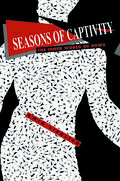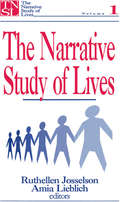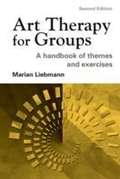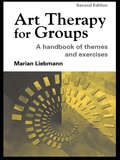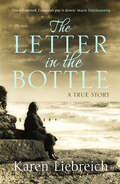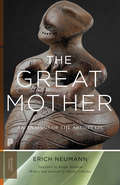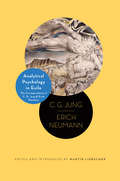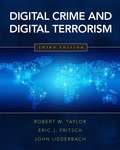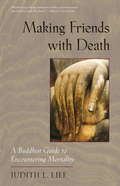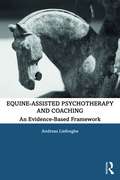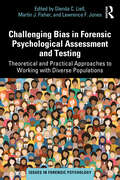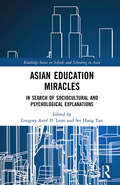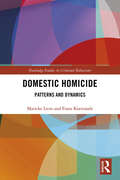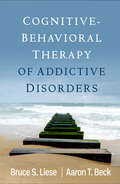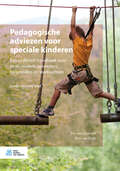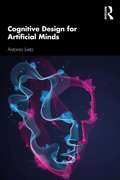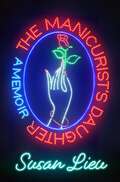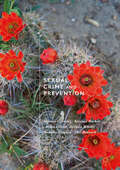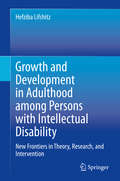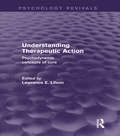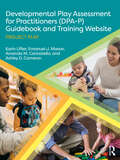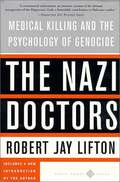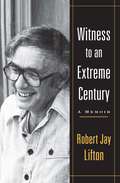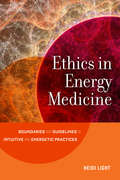- Table View
- List View
Seasons of Captivity: The Inner World of POWs
by Amia Lieblich"[An] engrossing study, told mainly by the subjects themselves... a valuable addition to POW literature and unique for its positive view of wartime captivity."-Publishers Weekly "Lieblich has skillfully integrated oral histories to produce a compelling story."-Library Journal "The minutes of the meetings recorded hereby are an excerpt of the lives of ten men, who had spent all their days and nights together. Each one observed the other in his grief and joy.Each one, according to his ability and sensitivity, saw it as his duty to contribute to the general welfare, to save our boat from sinking....In fact, we managed to keep afloat most of the time, and if we erred here or there, at least we had the best intentions."-From a secret collective diary kept by ten POWs A national bestseller when it first appeared in Israel, Seasons of Captivity is a story of human survival and hope that documents the experience of ten Israeli prisoners of war who shared a single jail cell in Egypt for more than three years. The engrossing chronicle of the prisoners' ordeal is told in their own words-from their capture in 1969, through six months of interrogation, torture, and isolation, to their movement to a common room. A watershed event, their transfer to shared living quarters enabled them to forge a community and an almost utopian social system. They held weekly meetings, kept a common diary, started study classes, and, among other projects, translated The Hobbit into Hebrew. The narrative goes on to describe the re-entry of the POWs into family and social roles upon their release and return to Israel in 1973. An exploration of the personal impact of the experience on the wives of the married prisoners introduces the women's own stories of separation and reunion. Some of them had suddenly found themselves, in effect, single mothers-yet their husbands were alive. Their husbands found stronger, more independent women in place of the traditional ones they had left behind. One of the women remarks, I thought [my husband] had been angry at me, in part unconsciously, for being so strong and competent in his absence...I had managed, well, almost effortlessly. This dramatic and moving account illustrates the resilience of the human spirit in the face of the most dehumanizing circumstances.
The Narrative Study of Lives
by Dr Amia Lieblich Ruthellen H. JosselsonHow do we derive concepts from stories and then use these concepts to understand people? What would have to be added to transform story material from the journalistic or literary to the academic and theoretically enriching? Addressing these and other issues such as the interface between life as lived and the social times, distinguished contributors explore this emerging new field in this unique volume. Beginning with the philosophical framework that underlies the study of narrative, the book covers such questions as: what makes people want to preserve the stories of their past? What methods can be used to deconstruct a narrative text? Can what we learn from people's narratives of their past be used to account for their curr
Art Therapy for Groups: A Handbook of Themes and Exercises
by Marian LiebmannNew material on race, culture and diversity, A chapter on recording, evaluation and evidence-based practice, A survey of literature on art therapy group Seventy new themes An updated international resources section.
Art Therapy for Groups: A Handbook of Themes and Exercises
by Marian LiebmannFirst published in 2004. Routledge is an imprint of Taylor & Francis, an informa company.
The Letter in the Bottle
by Karen LiebreichOn a winter's day in 2002, a bottle shaped like a tear washed up on the Kent coast. It contained a letter written in French, a lock of hair, and a mystery. Only one thing could be known for certain—that the writer of the letter was a mother, grieving for her lost child, Maurice. Moved by the woman's heartache, Karen Liebreich sets out on an epic journey to piece together the mother's story. Her book is the amazing true story of one woman's search for another, and a poignant reflection on love, loss, and motherhood. In this revised edition Liebreich concludes her epic quest, finally meeting the woman who sent the bottle years before, and coming to understand the loss that was at the heart of one mother's impulse to communicate with the unknown.
The Great Mother: An Analysis of the Archetype
by Martin Liebscher Ralph Manheim Erich NeumannThis landmark book explores the Great Mother as a primordial image of the human psyche. Here the renowned analytical psychologist Erich Neumann draws on ritual, mythology, art, and records of dreams and fantasies to examine how this archetype has been outwardly expressed in many cultures and periods since prehistory. He shows how the feminine has been represented as goddess, monster, gate, pillar, tree, moon, sun, vessel, and every animal from snakes to birds. Neumann discerns a universal experience of the maternal as both nurturing and fearsome, an experience rooted in the dialectical relation of growing consciousness, symbolized by the child, to the unconscious and the unknown, symbolized by the Great Mother.Featuring a new foreword by Martin Liebscher, this Princeton Classics edition of The Great Mother introduces a new generation of readers to this profound and enduring work.
Analytical Psychology in Exile: The Correspondence of C. G. Jung and Erich Neumann
by Martin Liebscher Heather Mccartney Erich Neumann C. G. JungC. G. Jung and Erich Neumann first met in 1933, at a seminar Jung was conducting in Berlin. Jung was fifty-seven years old and internationally acclaimed for his own brand of psychotherapy. Neumann, twenty-eight, had just finished his studies in medicine. The two men struck up a correspondence that would continue until Neumann's death in 1960. A lifelong Zionist, Neumann fled Nazi Germany with his family and settled in Palestine in 1934, where he would become the founding father of analytical psychology in the future state of Israel.Presented here in English for the first time are letters that provide a rare look at the development of Jung's psychological theories from the 1930s onward as well as the emerging self-confidence of another towering twentieth-century intellectual who was often described as Jung's most talented student. Neumann was one of the few correspondence partners of Jung's who was able to challenge him intellectually and personally. These letters shed light on not only Jung's political attitude toward Nazi Germany, his alleged anti-Semitism, and his psychological theory of fascism, but also his understanding of Jewish psychology and mysticism. They affirm Neumann's importance as a leading psychologist of his time and paint a fascinating picture of the psychological impact of immigration on the German Jewish intellectuals who settled in Palestine and helped to create the state of Israel.Featuring Martin Liebscher's authoritative introduction and annotations, this volume documents one of the most important intellectual relationships in the history of analytical psychology.
Digital Crime and Digital Terrorism (3rd Edition)
by John Liederbach Robert W. Taylor Eric J. FritschThis book focuses on both the technical aspects of digital crime as well as behavioral aspects of computer hackers, virus writers, terrorists and other offenders. Using real life examples and case studies, the book examines the history, development, extent and types of digital crime and digital terrorism as well as current legislation and law enforcement practices designed to prevent, investigate and prosecute these crimes. For professionals in the technical field as well as forensic investigators and other criminal justice professionals.
Making Friends with Death: A Buddhist Guide to Encountering Mortality
by Judith L. LiefIn Making Friends with Death, Buddhist teacher Judith Lief, who's drawn her inspiration from the Tibetan Book of the Dead, shows us that through the powerful combination of contemplation of death and mindfulness practice, we can change how we relate to death, enhance our appreciation of everyday life, and use our developing acceptance of our own vulnerability as a basis for opening to others. She also offers a series of guidelines to help us reconnect with dying persons, whether they are friends or family, clients or patients.Lief highlights the value of relating to the immediacy of death as an ongoing aspect of everyday life by offering readers a variety of practical methods that they can apply to their lives and work. These methods include:Simple mindfulness exercises for deepening awareness of moment-by-moment changePractices for cultivating loving-kindnessHelpful slogans and guidelines for caregivers to useMaking Friends with Death will enlighten anyone interested in coming to terms with their own mortality. More specifically, the contemplative approach presented here offers health professionals, students of death and dying, and people who are helping a dying friend or relative useful guidance and inspiration. It will show them how to ground their actions in awareness and compassion, so that the steps they take in dealing with pain and suffering will be more effective.
Equine-Assisted Psychotherapy and Coaching: An Evidence-Based Framework
by Andreas LiefoogheBased on over a decade of sustained longitudinal research with a broad range of different user groups, Equine-Assisted Psychotherapy and Coaching: An Evidence-Based Framework is an essential guide which offers both theoretical foundations and practical models for working with horses in psychotherapy and coaching. While not a panacea for distress and difficulties, the connections that humans find with horses can become a catalyst for deeper self-knowledge. By de-centring the human subject and placing the horse in the middle of the investigation, the ways in which humans make sense of themselves can be explored and more easily understood. Drawing on this wide spectrum of different client groups, the book features intervention studies with expelled teenagers, adults in addiction recovery programmes, children diagnosed on the autistic spectrum, people suffering from trauma and mental health problems, prisoners and even multi-national corporations wanting culture change. The practice of using horses in a psychological intervention is thoroughly scrutinised throughout, with ways of establishing successful change documented and assessed. Liefooghe’s analysis of these studies builds up to provide a comprehensive, evidence-based framework for equine-assisted psychotherapy and coaching. This essential book offers psychotherapists, coaches and all those who work in a helping capacity a clear insight into what horses can and cannot do in a therapeutic role.
Challenging Bias in Forensic Psychological Assessment and Testing: Theoretical and Practical Approaches to Working with Diverse Populations
by Glenda C. Liell Martin J. Fisher Lawrence F. JonesChallenging Bias in Forensic Psychological Assessment and Testing is a groundbreaking work that addresses the biases and inequalities within the field of forensic psychology. It gives valuable insights into individual practices and wider criminal justice approaches at an international level, while providing tangible solutions to tackle the disparities. This book constructively critiques current forensic practice and psychological assessment approaches through a variety of diverse voices from pioneering researchers around the world who offer their expertise on these challenges and assist the reader to consider their potential contribution to pushing forward the frontiers of Forensic Psychology. The authors also locate the origin of these biases in order to further dismantle them, and improve the outcomes for the forensic client base – especially specific diverse populations. They emphasise the need to be creative and evolve not just in line with the real-world changes of today, but also to prevent the issues of tomorrow before they become the next news headline. This is a must read for professionals working in criminal justice, forensic psychology, legal psychology, and related fields. It is also a compelling resource for students and researchers of forensic psychology with particular interest in social diversity and inclusion.
Asian Education Miracles: In Search of Sociocultural and Psychological Explanations (Routledge Series on Schools and Schooling in Asia)
by Gregory Liem Ser TanWith a focus on Asian contexts, this book brings together knowledge on how values and practices, embedded and practised in the classroom, school, family, and the society at large, can influence students’ motivation, engagement and psychological well-being. The book synthesizes research on students and systems from culturally diverse Asian countries and economies, including Cambodia, Hong Kong-China, Indonesia, Japan, Korea, the Philippines, Singapore, Chinese Taipei, Thailand, the United Arab Emirates, and beyond. The book takes special interest in applying the insights gained from understanding students’ motivation, engagement, and well-being within their sociocultural contexts. Importantly, chapters in the book are grounded on thorough theoretical reviews and sound empirical findings, which together inform practical applications to enhance the motivation, engagement, and well-being of students in the Asian region. Taken together, this book will serve as a comprehensive and authoritative source for scholars, researchers, and practitioners (teachers, school policy makers, and educators in general) who are interested in examining and enhancing student motivation, engagement, and well-being from Asian perspectives.
Domestic Homicide: Patterns and Dynamics (Routledge Studies in Criminal Behaviour)
by Marieke Liem Frans KoenraadtThe literature on domestic violence will often treat homicide as its most extreme outcome. The reality is more nuanced, with many domestic homicides occurring within a history of abusive behaviour. This book offers a much-needed synthesis of the literature on domestic homicide, covering its history; the theories supporting it; its various forms such as filicide, intimate partner homicide, parricide, siblicide and familicide; and its prevention. The authors explore the predominant theories that have been used to explain domestic homicides in general, as well as specific subtypes of domestic homicide. Each chapter then takes a chronological approach in examining relationships between victim and perpetrator in the most prominent types of domestic homicide. Drawing on the empirical evidence, it offers a unique insight into the dynamics of domestic homicides, and debunks some of the common stereotypes surrounding it. The book concludes with an overview of the main areas of prevention of domestic homicide and offers recommendations for professionals working in domestic violence services, medical practitioners and mental health services. This book will be of interest to criminologists, psychiatrists, psychologists and sociologists alike, and will be key reading for a range of courses on violence, abuse and aggression.
Cognitive-Behavioral Therapy of Addictive Disorders
by Bruce S. Liese Aaron T. BeckGrounded in decades of CBT research and clinical practice, as well as cutting-edge cognitive science, this book provides critical tools for understanding and treating the full range of addictive behaviors. Bruce S. Liese and Aaron T. Beck explain how to systematically develop case conceptualizations and support clients in achieving their recovery goals. The authors use vivid case examples to illustrate CBT techniques, structure, psychoeducation, motivational interviewing, group treatment, relapse prevention, and other effective therapeutic components. Several reproducible forms can be downloaded and printed in a convenient 8 1/2" x 11" size. Reflecting nearly 30 years of important advances in the field, this entirely new book replaces the authors' classic Cognitive Therapy of Substance Abuse.
Pedagogische adviezen voor speciale kinderen: Een Praktisch Handboek Voor Professionele Opvoeders, Begeleiders, Leerkrachten
by Trix Van Lieshout Ron Van DethDit boek is ontstaan vanuit vragen uit het werkveld om concrete, praktische adviezen voor de begeleiding van kinderen en jongeren met extra ondersteuningsbehoeften. Deze adviezen worden hierin uitvoerig besproken. De nadruk ligt op oplossingsgericht werken: mét jongeren zoeken naar wat al wél goed gaat, wat zij nog nodig hebben en wat voor hen goed werkt.Door zijn eenduidige structuur is het boek zowel een naslagwerk als een praktisch handboek. Bij alle probleemgebieden komen het beeld, de oorzaken, behandelingen, prognose en concrete handelingssuggesties aan de orde.Deze geheel herziene derde druk maakt gebruik van het nieuwe DSM-5 classificatiesysteem, waarbij wij ook de nadelen van etiketteren bespreken. Alle hoofdstukken zijn geactualiseerd.Het boek is geschreven voor (aankomend) orthopedagogen, psychologen, leerkrachten, intern begeleiders, (vak)docenten, zorgcoördinatoren, maatschappelijk werkers, kinder- en jeugdartsen en voor opleidingen in Hoger Beroepsonderwijs en Universiteit.Trix van Lieshout was als orthopedagoog en gezondheidszorgpsycholoog ruim 35 jaar werkzaam in het Voortgezet (Speciaal) Onderwijs. Zij schreef eerder Druk, druk, druk. Praktische tips voor de opvoeding van kinderen met ADHD. Momenteel geeft ze lezingen over pedagogisch vakmanschap. Website: www.trixvanlieshout.nlRon van Deth is psycholoog en publicist, verbonden aan het Europees Instituut voor Educatie in Driebergen. Hij was jarenlang docent in verschillende vormen van onderwijs en eindredacteur van PsychoPraktijk. Eerder schreef hij onder andere Psychiatrie: van diagnose tot behandeling en Inleiding in de psychopathologie.
Cognitive Design for Artificial Minds
by Antonio LietoCognitive Design for Artificial Minds explains the crucial role that human cognition research plays in the design and realization of artificial intelligence systems, illustrating the steps necessary for the design of artificial models of cognition. It bridges the gap between the theoretical, experimental and technological issues addressed in the context of AI of cognitive inspiration and computational cognitive science. Beginning with an overview of the historical, methodological and technical issues in the field of Cognitively-Inspired Artificial Intelligence, Lieto illustrates how the cognitive design approach has an important role to play in the development of intelligent AI technologies and plausible computational models of cognition. Introducing a unique perspective that draws upon Cybernetics and early AI principles, Lieto emphasizes the need for an equivalence between cognitive processes and implemented AI procedures, in order to realise biologically and cognitively inspired artificial minds. He also introduces the Minimal Cognitive Grid, a pragmatic method to rank the different degrees of biologically and cognitive accuracy of artificial systems in order project and predict their explanatory power with respect to the natural systems taken as source of inspiration. Providing a comprehensive overview of cognitive design principles in constructing artificial minds, this text will be essential reading for students and researchers of artificial intelligence and cognitive science.
The Manicurist's Daughter: A Memoir
by Susan LieuAn emotionally raw memoir about the crumbling of the American Dream and a daughter of refugees who searches for answers after her mother dies during plastic surgery.Susan Lieu has long been searching for answers. About her family’s past and about her own future. Refugees from the Vietnam War, Susan’s family escaped to California in the 1980s after five failed attempts. Upon arrival, Susan’s mother was their savvy, charismatic North Star, setting up two successful nail salons and orchestrating every success—until Susan was eleven. That year, her mother died from a botched tummy tuck. After the funeral, no one was ever allowed to talk about her or what had happened.For the next twenty years, Susan navigated a series of cascading questions alone—why did the most perfect person in her life want to change her body? Why would no one tell her about her mother’s life in Vietnam? And how did this surgeon, who preyed on Vietnamese immigrants, go on operating after her mother’s death? Sifting through depositions, tracking down the surgeon’s family, and enlisting the help of spirit channelers, Susan uncovers the painful truth of her mother, herself, and the impossible ideal of beauty.The Manicurist’s Daughter is much more than a memoir about grief, trauma, and body image. It is a story of fierce determination, strength in shared culture, and finding your place in the world.
Sexual Crime and Prevention (Sexual Crime)
by Rebecca Lievesley Kerensa Hocken Helen Elliott Belinda Winder Nicholas Blagden Phil BanyardThis book brings together a thought-provoking collection of original contributions to the study of sexual crime prevention. Written in an accessible and practical style, the book begins with an exploration of the theoretical underpinnings of sexual crime prevention, as well as the history and development of prevention work over the years, providing an overview of prevention initiatives around the world. The second section spotlights three in depth case studies of organisations delivering prevention work in the UK. Final sections of the book explore the service user experience, impact of the media, and attitudes and consideration of future directions for prevention work. The book is relevant not only to psychologists, criminologists, social workers and students, but to practitioners, researchers and anyone with an interest in learning about sexual crime prevention.
Growth and Development in Adulthood among Persons with Intellectual Disability: New Frontiers in Theory, Research, and Intervention
by Hefziba LifshitzThis volume advocates an optimistic new conceptual and practical approach to adulthood, aging, and education for individuals with intellectual disability (ID) across the lifespan. The compensation age theory (CAT) at the heart of this book suggests that the adulthood period in populations with ID may be characterized by processes of cognitive development, growth, and neural sprouting, rather than stagnation or even decline. Empirical findings indicate the contribution of chronological age, maturity, and accumulating life experiences to adults’ continued cognitive growth and intelligence, as a result of direct mediation, cognitive intervention, and academic learning as well as exposure to indirect learning. Grounded in cumulative evidence for the CAT, the book presents comprehensive analysis of a practical holistic educational intervention model for enhancing adults’ Cognition (literacy), Affect (including autonomy), and Behavior (adaptive behavior skills), including operative strategies, mediational parameters, and guidance for change agents in diverse settings. This triple CAB model offers detailed tools for promoting the cognitive improvement and invigoration of adults with ID in during ADL, vocational and leisure activities, at all severity levels ranging from mild and moderate to severe and profound, across different ID etiologies including Down syndrome, and even at advanced ages for adults with ID exhibiting comorbid Alzheimer’s.
Understanding Therapeutic Action: Psychodynamic Concepts of Cure (Psychology Revivals)
by Lawrence E. LifsonMost of the existing psychodynamic literature approaches the treatment process from one particular theoretical perspective or another. Yet, what contemporary psychotherapists need most is practical information that transcends individual perspectives. After all, they must be able to treat patients who suffer from structural conflict, structural deficit, and relational conflict, and they must be able to understand the theories of therapeutic action associated with these concepts of psychopathology in relation to one another. Originally published in 1996, Understanding Therapeutic Action: Psychodynamic Concepts of Cure both surveys different theories of therapeutic action and offers an integrative model of treatment. Editor Lawrence E. Lifson has brought together contributors who are among the leading theoreticians and practitioners of psychodynamic psychotherapy. Their chapters’ cover all the major perspectives on therapeutic action and are organized into sections covering structural and object relations theories; the self as the focus of therapeutic action; and an integrative approach to the concept of cure. The emphasis throughout is on the translation of theory into clinical practice, with attention given to the contributions of patient and therapist alike in the curative process. Providing clinicians with a comprehensive overview and synthesis of the different models of therapeutic action, this collection is an illuminating exercise in comparative psychotherapy and a valuable tool for enhancing the applicability and effectiveness of clinical work.
Developmental Play Assessment for Practitioners (DPA-P) Guidebook and Training Website: Project Play
by Karin Lifter Emanuel J. Mason Amanda M. Cannarella Ashley D. CameronDevelopmental Play Assessment for Practitioners (DPA-P) Guidebook and Training Website: Project Play offers a comprehensive assessment of naturally occurring play activities for evaluating young children’s developmental progress accurately, so that useful interventions can take place as early as possible. It can be used by practitioners in a wide range of educational and therapeutic settings and is designed to support developmental progress through planning interventions in play, and using what we know about a child’s progress in play to plan play-based interventions in cognition, language, motor, social-emotional, and self-help skills. The guidebook and training website provide a comprehensive introduction to how to successfully use the assessment with infants, toddlers, and young children with disabilities or at risk for disabilities. The comprehensive guidebook offers an overview of the DPA-P and Project Play, defines play, discusses the background literature on play, and explains why this assessment is needed. Clear guidance helps practitioners and family members understand play, how to evaluate play, and how to use play for different purposes. The guidebook offers: an introduction to the comprehensive training website and how to use it understanding of the categories of play assessed and their definitions guidance on how to administer the assessment and prepare a summary evaluation of a child’s performance clear instructions for the coding sheets and scoring guidelines for constructing sets of toys guidance on taking the results of the DPA-P evaluation of a child’s progress in play to develop a plan of activities for intervention explanation of how you evaluate activities at the absence, basic, emergence, and mastery levels for developing a plan suggestions for assembling sets of toys for intervention, based on toys available in children’s homes and early childhood settings procedures for facilitating or teaching play activities to children who are developing more slowly than their peers technical aspects of the assessment To make the DPA-P as flexible as possible for all practitioners, it also offers guidance on adaptations for administering the test, in the coding sheets, with toys to enhance cultural appropriateness for gathering the observations, and for supporting interventions in play. The Developmental Play Assessment for Practitioners (DPA-P) can be used in natural settings and takes 30 minutes to complete. It is a valuable tool for all those who serve, or are training to serve, young children in early childhood settings, schools, service agencies, colleges, and universities. It will be of great benefit for early intervention personnel, speech-language pathologists, physical therapists, occupational therapists, and psychologists.
The Nazi Doctors: Medical Killing and the Psychology of Genocide
by Robert LiftonIn his most powerful and important book, renowned psychiatrist Robert Jay Lifton presents a brilliant analysis of the crucial role that German doctors played in the Nazi genocide. Now updated with a new preface, The Nazi Doctors remains the definitive work on the Nazi medical atrocities, a chilling exposé of the banality of evil at its epitome, and a sobering reminder of the darkest side of human nature.
Witness to an Extreme Century: A Memoir
by Robert Jay LiftonOn a fateful day in the spring of 1954 Robert Jay Lifton, a young American psychiatrist just discharged from service in the Korean War, decided to stay in Hong Kong rather than return home--changing his life plans entirely--so that he could continue work that had enthralled him, interviewing people subjected to Chinese thought reform. He had plunged into uncharted territory in probing the far reaches of the human psyche, as he would repeatedly in the years ahead, and his Hong Kong research provided the first understanding of the insidious process that came to be known as brainwashing. From that day in Hong Kong forward, Lifton has probed into some of the darkest episodes of human history, bearing his unique form of psychological witness to the sources and consequences of collective violence and trauma, as well as to our astonishing capacity for resilience. In this long-awaited memoir, Lifton charts the adventurous and constantly surprising course of his fascinating life journey, a journey that took him from what a friend of his called a "Jewish Huck Finn childhood" in Brooklyn to friendships with many of the most influential intellectuals, writers, and artists of our time--from Erik Erikson, David Riesman, and Margaret Mead, to Howard Zinn and Kurt Vonnegut, Stanley Kunitz, Kenzaburo Oe, and Norman Mailer. In his remarkable study of Hiroshima survivors, he explored the human consequences of nuclear weapons, and then went on to uncover dangerous forms of attraction to their power in the spiritual disease he calls nuclearism. During riveting face-to-face interviews with Nazi doctors, he illuminated the reversal of healing and killing in ordinary physicians who had been socialized to Nazi evil. With Vietnam veterans he helped create unprecedented "rap groups" in which much was revealed about what we now call post-traumatic stress disorder, helping veterans draw upon their experience for valuable, even prophetic, insights about atrocity and war. As a pioneer in psychohistory, Lifton's encounters with the consequences of cruelty and destructiveness led him to become a passionate social activist, lending a powerful voice of conscience to the suppressed truths of the Vietnam War and the dangers of nuclear weapons. Written with the warmth of spirit--along with the humor and sense of absurdity--that have made Lifton a beloved friend and teacher to so many, Witness to an Extreme Century is a moving and deeply thought-provoking story of one man's extraordinary commitment to looking into the abyss of evil in order to help us move beyond it.
Witness to an Extreme Century
by Robert Jay LiftonOn a fateful day in the spring of 1954 Robert Jay Lifton, a young American psychiatrist just discharged from service in the Korean War, decided to stay in Hong Kong rather than return home--changing his life plans entirely--so that he could continue work that had enthralled him, interviewing people subjected to Chinese thought reform. He had plunged into uncharted territory in probing the far reaches of the human psyche, as he would repeatedly in the years ahead, and his Hong Kong research provided the first understanding of the insidious process that came to be known as brainwashing. From that day in Hong Kong forward, Lifton has probed into some of the darkest episodes of human history, bearing his unique form of psychological witness to the sources and consequences of collective violence and trauma, as well as to our astonishing capacity for resilience. In this long-awaited memoir, Lifton charts the adventurous and constantly surprising course of his fascinating life journey, a journey that took him from what a friend of his called a "Jewish Huck Finn childhood" in Brooklyn to friendships with many of the most influential intellectuals, writers, and artists of our time--from Erik Erikson, David Riesman, and Margaret Mead, to Howard Zinn and Kurt Vonnegut, Stanley Kunitz, Kenzaburo Oe, and Norman Mailer. In his remarkable study of Hiroshima survivors, he explored the human consequences of nuclear weapons, and then went on to uncover dangerous forms of attraction to their power in the spiritual disease he calls nuclearism. During riveting face-to-face interviews with Nazi doctors, he illuminated the reversal of healing and killing in ordinary physicians who had been socialized to Nazi evil. With Vietnam veterans he helped create unprecedented "rap groups" in which much was revealed about what we now call post-traumatic stress disorder, helping veterans draw upon their experience for valuable, even prophetic, insights about atrocity and war. As a pioneer in psychohistory, Lifton's encounters with the consequences of cruelty and destructiveness led him to become a passionate social activist, lending a powerful voice of conscience to the suppressed truths of the Vietnam War and the dangers of nuclear weapons. Written with the warmth of spirit--along with the humor and sense of absurdity--that have made Lifton a beloved friend and teacher to so many, Witness to an Extreme Century is a moving and deeply thought-provoking story of one man's extraordinary commitment to looking into the abyss of evil in order to help us move beyond it.
Ethics in Energy Medicine: Boundaries and Guidelines for Intuitive and Energetic Practices
by Heidi LightThe first guidebook to discuss the full scope of the intuitive process and propose structures to keep practitioners and clients safeHeidi Light, a family counselor and certified hypnotherapist, asserts that we are in desperate need of guidance and standards so that we can approach the world of intuition, energy, and mysticism from a healthy and respectful place. Drawing from her more than forty years as a medical intuitive, empath, and energy tracker—as well as twenty years as a counselor in private, clinical, and institutional settings—Light offers practical, simple solutions to the alarming lack of boundaries in the fields of intuition and energy medicine. From massage therapists who just throw in a little extra energy work, to psychics who read your sister instead of you, or to practitioners who tell you to take off your clothes, Light shares case studies and vignettes of ethical boundaries mistakenly being crossed. This book explains the traditional psychological model of ethics that counselors and psychologists are taught and outlines an ethical energetics model as a framework for moving through the process of accessing intuitive information and working with energy. Experienced energy workers, those new to the field and just opening to their intuition, and those who come to them for services need to know these ethical guidelines of boundaries and consent.
